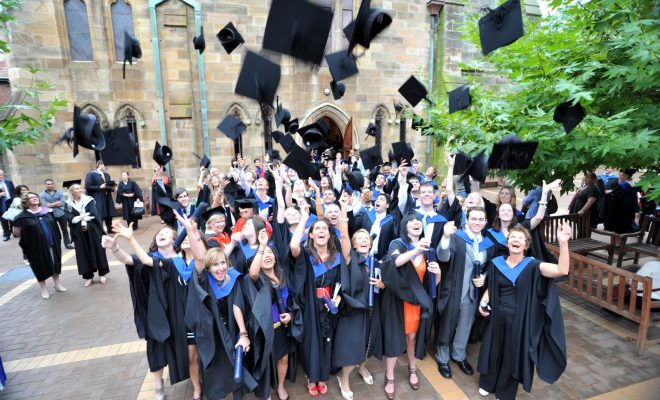3 People (Besides Teacher) Who Play a Role in Students’ Success

Introduction: The Importance of a Supportive Network
When discussing the success of students in educational settings, the conversation often revolves around teachers as the primary influencers. While educators undeniably play a critical role in shaping young minds, there are numerous other individuals who significantly impact students’ academic journeys and personal development. In this article, we will explore three key figures—parents, school counselors, and peers—who contribute to students’ success in various ways. Understanding their roles provides a more comprehensive view of the support systems that foster student achievement.
Parents: The First Teachers in Life
Parents are the first educators a child encounters, and their influence extends far beyond the classroom. From the initial stages of childhood through adolescence, parents play a pivotal role in shaping their children’s attitudes toward education, work ethic, and social behavior.
Support at Home: Creating a Positive Learning Environment
Parents set the foundation for a child’s educational experience by establishing a supportive home environment. This involves:
- Encouragement: Parents who express belief in their child’s abilities help foster self-esteem and resilience. This encouragement motivates students to take on challenges and strive for academic success.
- Involvement: Active participation in a child’s education—such as attending school events, helping with homework, or communicating with teachers—demonstrates to students that their education is valued.
- Resources: Providing access to educational resources, including books, technology, and extracurricular activities, can enhance learning opportunities outside of school hours.
Parental Attitudes: Influencing Academic Performance
Research shows that parental attitudes toward education significantly affect students’ academic performance. Children who observe their parents valuing education are more likely to adopt similar attitudes. Parents can further influence their children’s success through:
- Setting Expectations: Establishing clear expectations regarding academic performance and behavior encourages students to strive for excellence.
- Modeling Behavior: Demonstrating a commitment to learning—whether through pursuing further education or engaging in lifelong learning—serves as a powerful example for children.
School Counselors: Guiding Students Through Challenges
School counselors serve as essential support systems for students, providing guidance on academic, personal, and social issues. Their multifaceted roles encompass various responsibilities that contribute to student success.
Academic Support: Helping Students Stay on Track
Counselors play a crucial role in helping students navigate their academic paths. They do this by:
- Providing Guidance: Counselors assist students in selecting appropriate courses, understanding graduation requirements, and exploring post-secondary options.
- Monitoring Progress: Regular assessments of students’ academic performance allow counselors to identify those who may need additional support, ensuring that no one falls through the cracks.
- Implementing Interventions: For students facing academic challenges, counselors can recommend tutoring, study skills workshops, or alternative learning strategies to help them succeed.
Emotional and Social Support: Addressing Personal Challenges
Beyond academics, school counselors are equipped to address students’ emotional and social needs. They offer:
- Counseling Services: Individual or group counseling sessions provide a safe space for students to discuss personal issues, such as anxiety, bullying, and family problems, which can impact their academic performance.
- Conflict Resolution: Counselors often mediate conflicts between students or provide resources to help them develop conflict resolution skills, fostering a more harmonious school environment.
- Career Guidance: Counselors help students explore career options, internships, and job shadowing opportunities, providing them with a clearer vision of their future.
Peers: The Impact of Friendship and Collaboration
While often overlooked, peers play a significant role in shaping students’ educational experiences and outcomes. The relationships students build with their classmates can influence their motivation, attitude toward learning, and overall success.
Collaborative Learning: Enhancing Academic Understanding
Peer interactions can enhance the learning process through:
- Study Groups: Collaborative study sessions allow students to share knowledge, clarify doubts, and reinforce learning concepts, often leading to improved understanding and retention.
- Peer Tutoring: Students may find it easier to learn from their peers, who can explain concepts in relatable terms. Peer tutors can help bridge gaps in understanding and build confidence in struggling students.
- Social Learning: Working together on projects and assignments fosters a sense of community and encourages students to take responsibility for their learning.
Emotional Support: Building a Supportive Network
Friendships formed during school years provide emotional support that can be vital for students’ overall well-being. Peers can:
- Offer Encouragement: Friends who celebrate each other’s successes and provide motivation during tough times can significantly enhance a student’s resilience.
- Share Experiences: Students often face similar challenges; discussing these experiences with peers can provide comfort and understanding, reducing feelings of isolation.
- Promote Positive Behavior: Being surrounded by motivated and engaged peers can inspire students to adopt similar attitudes, reinforcing a culture of success within the student body.
Conclusion: The Collective Impact on Student Success
While teachers undoubtedly play a crucial role in student success, it is essential to recognize the significant contributions of parents, school counselors, and peers. Each of these individuals helps create a supportive environment that fosters academic achievement and personal growth. By understanding the diverse influences on a student’s educational journey, we can better appreciate the collaborative nature of learning and the importance of a strong support network. Encouraging stronger partnerships among these key figures can further enhance the educational experience, ensuring that students are equipped to thrive both academically and personally.





